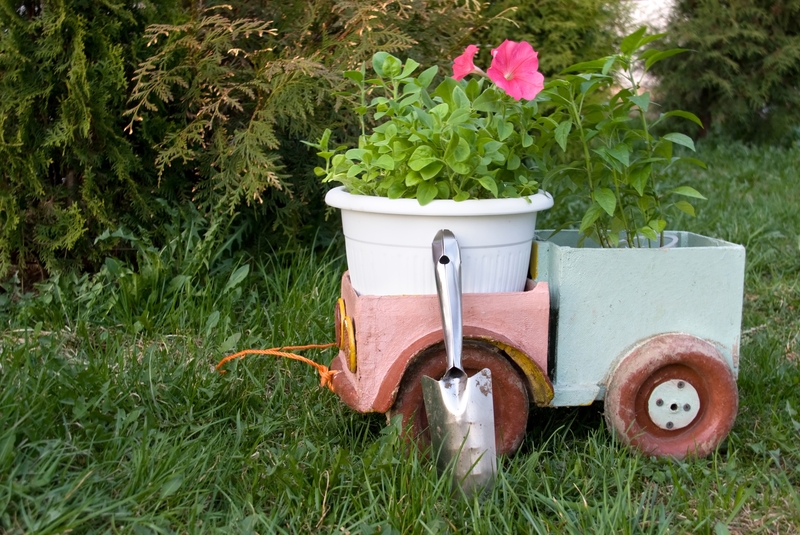Clever Ways to Save Money While Dealing With Bulky Waste
Are you faced with the daunting task of getting rid of bulky waste and worried about the costs? Bulky waste disposal can often seem overwhelming, both in logistical challenges and the potential strain on your wallet. Fortunately, there are numerous cost-effective ways to dispose of large items that can help you save money while being eco-friendly and efficient. In this guide, we'll explore a variety of clever strategies and tips to minimize costs and headaches when it comes to managing bulky waste.

Understanding Bulky Waste: What Qualifies?
Before diving into practical solutions, let's clarify what counts as bulky waste. Typically, bulky waste refers to large household items that cannot fit into standard bins, such as:
- Old furniture (sofas, mattresses, wardrobes)
- Large appliances (refrigerators, washing machines, ovens)
- Garden waste (tree branches, logs, fencing)
- Construction debris (drywall, sinks, bathtubs)
These items are not usually collected as part of regular household waste services, leading many people to seek costly disposal solutions. But with a bit of planning and smart approaches, you can cut those costs down dramatically.
Analyze Your Bulky Waste: The First Step to Savings
The very first step in
- Types of items (materials, size, condition)
- Quantity
- Whether any items can be reused, sold, or donated
This inventory helps you avoid unnecessary expenses by revealing which items can be dealt with in different, more affordable or even profitable ways.
Clever Ways to Save Money While Disposing of Bulky Items
1. Sell or Donate Usable Items
One of the most straightforward ways to avoid bulky waste disposal fees is by
- Online Marketplaces: Platforms like Facebook Marketplace, Craigslist, Gumtree (UK), or local classified groups are excellent options to find buyers for old furniture, appliances, and other large items. You might be surprised--people often pick up items for free or even pay for them as upcycling projects!
- Charity Organizations: Many local charities or non-profit organizations will pick up usable items for free. This is especially true for large furniture and working appliances. You save on disposal fees, and your items find a second life with someone in need.
- Community Donation Days: Some towns hold annual or seasonal bulk trash pickup or donation events, where you can leave items curbside to be picked up at no cost to you.
Tip: Take clear photos and provide honest descriptions to have the best shot at a quick transaction.
2. Upcycling & Repurposing for DIY Savings
Thinking creatively about your bulky waste can save money and boost your home's unique style. For example:
- Turn an old dresser into a storage bench or garden planter.
- Use pallet wood for DIY garden projects.
- Repurpose a vintage bathtub as an outdoor flower bed.
There are thousands of online tutorials and communities focused on DIY upcycling of large items. Not only does this keep items out of the landfill, but it can also save you the cost of buying new furniture or decor.
3. Take Advantage of Local Council Services
Many municipalities offer bulky waste collection services for a low fee--or even for free in some areas. Always check your local council's website before paying a private hauler. Key points:
- Bulk Collection Days: Certain cities schedule periodic bulk pickup days when residents can leave large items curbside free of charge. Plan your waste disposal around these events.
- Discounted Collection: Some communities offer discounted rates for seniors, low-income households, or residents disposing of multiple items at once.
- Recycling Centers: Local recycling depots may accept certain bulky items at no cost, particularly if they are mostly metal, wood, or other easily-processed materials.
With a little planning, you may never have to pay full price for large-item removal again.
4. Rent or Share Transport to the Tip
If you have access to a vehicle or can borrow a truck, transporting your own bulk waste to a local landfill or recycling center can significantly reduce removal costs. For even bigger savings:
- Carpool with Neighbors: Find out if anyone in your neighborhood also has bulky items to dispose of. Pool resources to rent a van or trailer and split the cost.
- Community Clean-up Events: Organize a block-wide or apartment-wide haul to maximize efficiency and minimize expense.
Many waste transfer stations charge by the load/vehicle rather than the amount, so sharing is an easy way to cut the cost of disposal.
5. Compare Private Collection Services Wisely
When municipal options aren't available or convenient, you may need a professional service. But rates vary significantly, so:
- Get Multiple Quotes: Reach out to several companies for their best offer--many have discounts for specific days or for bulkier loads.
- Understand Pricing Models: Some services charge per item, while others charge by volume or weight. Choose the option that fits your situation best.
- Beware of Hidden Fees: Ask in advance whether things like labor, recycling, or landfill fees are included.
Sometimes, third-party apps or community groups also arrange pickup with local hauliers or freelancers, often at reduced rates compared to national brands.
6. Break Down Items to Reduce Costs
Many disposal and collection services charge based on the size or number of items rather than weight. Breaking down large furniture, doors, or appliances into smaller parts can:
- Make you eligible for a smaller (cheaper) collection slot
- Allow you to fit more in your own vehicle or bin
- Reduce manual labor charges from haulers
Always take safety precautions--wear gloves, use the right tools, and avoid trying to dismantle anything with hazardous materials (like old refrigerators or electrical goods).
7. Look for Voucher or Discount Schemes
Some regions or utility providers offer discount vouchers for waste disposal or special rates for disposing of certain eco-problematic items (like mattresses or white goods). Ask your local authority, utility company, or community organization about any available money-saving schemes.
Bonus Tips: Minimize Future Bulky Waste to Save More
The best way to save on bulky waste removal is to create less of it. Consider these smart long-term strategies:
Buy Smart and Buy Less
- Choose modular, versatile furniture that's easy to move and less likely to become waste.
- Opt for reusable and recyclable materials in household upgrades and renovations.
- Buy second-hand when possible--it's cost-effective and creates a circular economy.
Regular Maintenance and Responsible Disposal
- Maintain appliances and furniture to extend their life--simple fixes can defer large disposal costs by years.
- Dispose of items incrementally (one or two at a time), which is often cheaper than waiting for a full house clearance.
Share or Lend Large Items
- Borrow or rent instead of buying infrequently-used items like lawnmowers, power tools, or party furniture. In the long run, this keeps bulky items out of your home and your landfill footprint smaller.
Support Buy-Back and Refurbishment Programs
- Some retailers (especially for white goods and electronics) offer buy-back or trade-in schemes for old items. These programs often include free collection and may give you credit towards your next purchase.

Frequently Asked Questions about Affordable Bulky Waste Disposal
What is the cheapest way to get rid of large furniture?
Selling, giving away, or donating large furniture in reasonable condition is usually free and may even earn you a small profit. Check local charities and online classified ads. For non-usable pieces, community collection days or taking items directly to recycling centers are more affordable than private haulers.
Can I leave bulky items on the curb for pickup?
This depends on your local regulations. Some cities offer periodic free bulk item curb collection; others require you to book and pay for a slot. Placing items at the curb without prior arrangement can result in fines.
How do I dispose of old appliances cheaply and safely?
Many retailers will collect old appliances for a reduced fee when delivering a new one. Your local council's recycling center might accept white goods for free. Always remove doors from refrigerators and take proper safety measures to avoid hazards.
Will breaking down large items save money on collection?
Yes! Most councils and private collectors allow you to fit more waste into a single load if items are disassembled, often reducing the number or size of pickups required.
Conclusion: Save Money, Save Space, Save the Planet
Dealing with bulky waste doesn't need to be expensive or stressful. By taking inventory of your items, exploring free or low-cost community resources, maximizing reuse or resale opportunities, and tackling disposal in small, manageable steps, you can significantly lower your bulky waste disposal costs. Try different strategies, and you may discover that reducing, reusing, and recycling can also make you some extra cash--while keeping your home clutter-free and the environment cleaner.
Remember: Being resourceful isn't just smart for your wallet--it's a win for your whole community!
